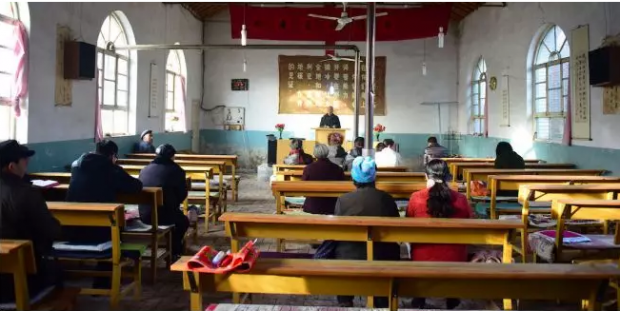My mother often used to tell me, "It's easier to lead soldiers than guide a congregation." It illustrates the difficulty of managing a church. The reason is that all church leaders who volunteer in the church can only mobilize believers rather than give them direct orders. As a result, they face family pressure and also keep attentive at running the church.
This article focuses on the pastoring dilemmas in the rural church and their forms at present and attempts to explore a suitable pastoral system.
1. Village-thinking society.
The great difference between the rural area and the city lies in interpersonal relations.
Owing to the capacity of cities, urban people are relatively independent and freely switch their identities in different situations. This adds regularity to the pastoral ministry in urban churches that specifically nurtures Christians based on their diverse social identities. For example, special fellowships for professionals, businesspersons, or the elderly, as well as English Bible studies for highly educated Christians.
However, such division is not applicable to the rural church because all the people in the village live in the same circle regardless of their identities.
For example, in the urban area, we can call a believer Brother X or Sister Y. However, in the rural church, we have to address a believer as Uncle X or Older Brother Y because of the hierarchy in the family relationships. This way of addressing the person relates to the interpersonal issue.
In contrast to the simple relationship between a shepherd and a sheep, the web of relationships in the countryside is more difficult to deal with. Therefore, there is no consistent pastoring model for rural congregations. One has to rely on one's personal experiences and dealings. This is why a large number of grassroots people are in charge of rural churches. They are very good at maintaining good relations with their areas and the local people.
However, this creates a serious problem: there is very little nurture in the church. Those grassroots "leaders" do not know how to shepherd. On the other hand, persons with expertise in shepherding rarely deal with the complicated relationships in the rural church. Consequently, some of the rural churches are extremely secular or "godly" and few can find a happy medium.
2. Less educated pastors and believers.
Because of being incapable of pastoring churches, many rural leaders fail to make decisions according to what their church demands.They tend to focus more on the number of pastors than on the quality. In their eyes, a good pastor can deliver a one or two-hour sermon. This results in there being no pastor from among twenty in the church who can correctly explain the Bible. They rarely even complete the whole Bible reading.
This phenomenon is also related to the history of the rural church. In the past, a rural church had no pastor. The congregation was satisfied with a literate believer who could read the Bible to them. Since their faith was also low, they remained inclusive towards and respectful of any pastor. In spite of a rural pastor having poor preaching skills, the "work" of preaching happened on Sundays without any criticism. They just needed to deliver a sermon once every one or two months. Moreover, they did not receive subsidies from the church as volunteers. Hence, it was hard for some capable pastors to stay in the countryside. They gave up their ministries and worked in the cities, or continued to serve in a better environment. This led to a careless mentality and low level of performance.
Nonetheless, this phenomenon is being confronted. Currently, congregations, in general, have more highly educated members than a generation ago. Churches and members have internet access to sermons preached by "famous pastors". When they become critical of their own church's sermons, it may force low-quality pastors to leave the pulpit and bring in other leaders with better skills at preaching or pastoring.. Significant changes may take place as the older generation dies away. As a result, the newer generation will be improved.
3. "Unstable congregations".
Although rural people live in a big circle, it is difficult for them to be regular churchgoers. This is more severe in churches made of migrant workers.
Migrant-worker churches are not stable in the long run. In a relative period, their members are integrated into and attend churches regularly. For rural churches, however, their attendance is low and always changing. Some migrate workers never go to church during the year. A portion of them find migrant-worker churches in cities, but the majority never attend church. The Chinese New Year holiday time when they travel back to their hometowns is their only chance of going to church.
What's worse, rural churches are unable to understand their spiritual condition because of not having a suitable way to measure it.
Amazingly, the "left-behind" members do not attend church regularly either. Affected by the agricultural growing seasons, they stop attending church for a long time. Some choose to temporarily not attend the worship service for domestic reasons or need to take care of children. Their meeting time depends on their "free time", something that is even unknown to them.
This is also why rural churches love to hold "revival meetings" during which good preachers are invited to intensively train congregations for long hours. The number of donations increases because of these meetings.
Thus, the pastoral ministry relies on revival meetings to nurture members rather than a systematic way in the church.
In ordinary times, church attendance remains around several dozen, while increasing to 200 during the less busy seasons in the farm calendar and even up to 500 during the Spring Festival.
- Translated by Karen Luo












